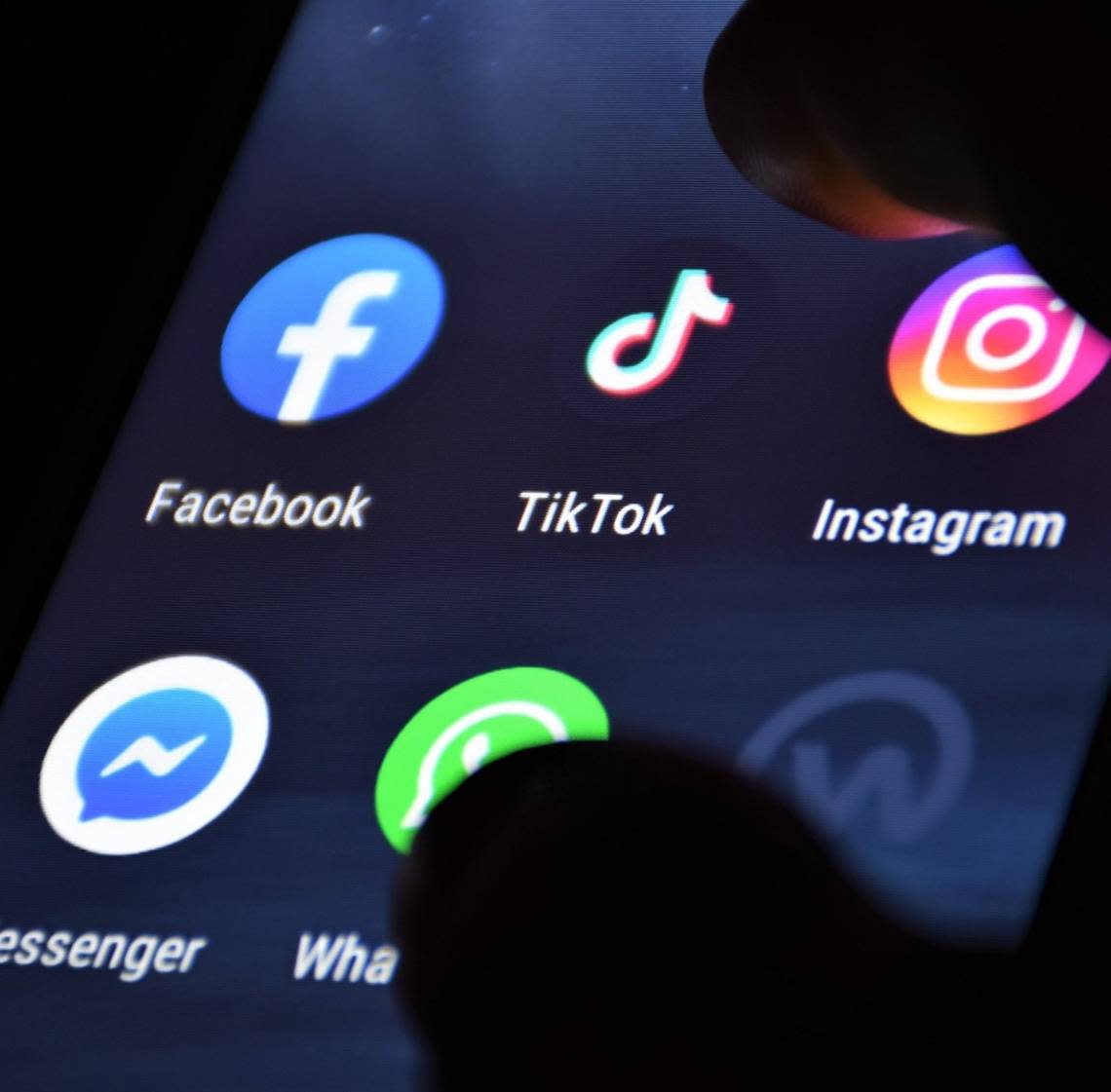TikTok sues US over sell-or-ban law. What the lawsuit means for California’s 16 million users

TikTok and its parent company ByteDance are fighting back in federal court nearly two weeks after President Joe Biden signed a bill into law requiring the Chinese-owned company ByteDance to sell the TikTok app or face a nationwide ban.
TikTok, a short video social media app, has 170 million American users, including 16 million in California.
The legal challenge, filed in the U.S. Court of Appeals for the District of Columbia Circuit, was published online Tuesday. The petition asks the court to find the law violates the U.S. Constitution and prevent it from being enforced.
In a 67-page petition, attorneys for TikTok and its parent company wrote that the law in question, Protecting Americans From Foreign Adversary Controlled Applications Act, was unconstitutional, both by effectively banning the app and forcing a company to sell.
“For the first time in history, Congress has enacted a law that subjects a single, named speech platform to a permanent, nationwide ban, and bars every American from participating in a unique online community with more than 1 billion people worldwide,” the lawyers wrote.
The company’s attorneys argued that the law requiring ByteDance to divest or face a ban “is so obviously unconstitutional” that federal lawmakers “tried mightily” to portray the law not as a ban but “merely a regulation of TikTok’s ownership.”
“They claim that the Act is not a ban because it offers ByteDance a choice: divest TikTok’s U.S. business or be shut down,” the attorneys wrote.
But, the lawyers said, the forced sale is not possible, “not commercially, not technologically, not legally.”
“And certainly not on the 270-day timeline required by the Act,” the attorneys for TikTok wrote, adding that company representatives repeatedly explained to government officials that the divestment wasn’t possible.
TikTok’s lawyers argued in the complaint that the law would force a shutdown of the platform on Jan. 19, 2025, “silencing the 170 million Americans who use the platform to communicate in ways that cannot be replicated elsewhere.”
The petition goes on to argue that if the law is upheld, it would allow the government to decide that a company may no longer own or publish “innovative and unique” speech on their own platform.
“If Congress can do this, it can circumvent the First Amendment by invoking national security and ordering the publisher of any individual newspaper or website to sell to avoid being shut down,” lawyers wrote in the complaint.
The petition notes that federal lawmakers could not articulate any specific threats posed by the app.
“Even the statements by individual Members of Congress and a congressional committee report merely indicate concern about the hypothetical possibility that TikTok could be misused in the future, without citing specific evidence — even though the platform has operated prominently in the United States since it was first launched in 2017,” the petition reads.
Republican and Democratic lawmakers have said TikTok, under the control of its China-based parent company, poses a risk to national security. Many legislators have expressed concern that Chinese officials could ask the app for data on the 170 million Americans who use it as well as push disinformation to them. Congressional lawmakers have received classified intelligence briefings on TikTok and issues of national security and data privacy.
Many Washington legislators were skeptical of the TikTok crackdown — but not enough to vote against the aid bill for Ukraine, Israel and Taiwan where the measure was included.
Biden supported the TikTok law, with White House Press Secretary Karine Jean-Pierre telling reporters on the day he signed it that “This is not a ban.”
“This is about divestment,” she said. “This about our national security.”
The U.S. Justice Department declined to comment for this story. The White House referred The Bee to the U.S. Justice Department in response to a request for comment.
Lawyers for TikTok argued in the petition that the company has invested more than $2 billion to build “a system of technological and governance protections” in order to safeguard user data. The company noted it also agreed to a “shut-down option” that would give the government the power to suspend the app in the U.S. if the company violated certain obligations.
TikTok attorneys also alleged in the lawsuit that the law treats the social media company differently than other U.S. based platforms, violating the right to equal protection, and unlawfully takes the company’s private property without proper compensation.
Attorneys claimed there is no similar law on a company because of constitutional rules on a free and open internet, fairness and equal treatment — thus “Congress has never before crafted a two-tiered speech regime with one set of rules for one named platform, and another set of rules for everyone else.”

